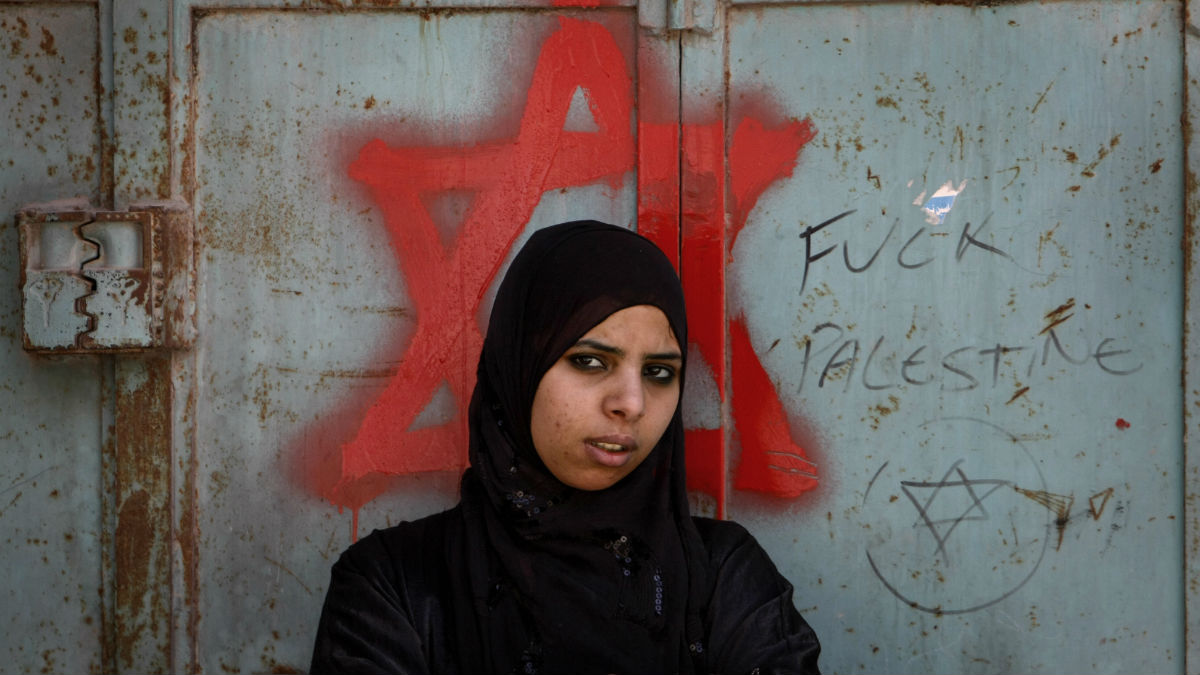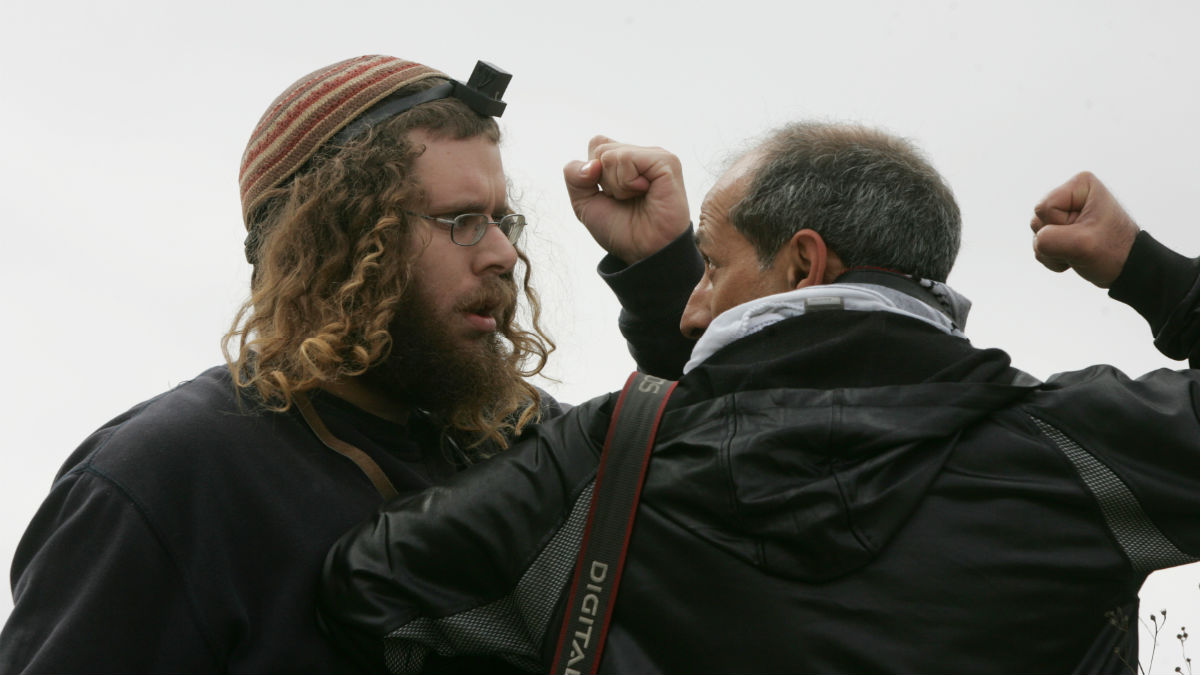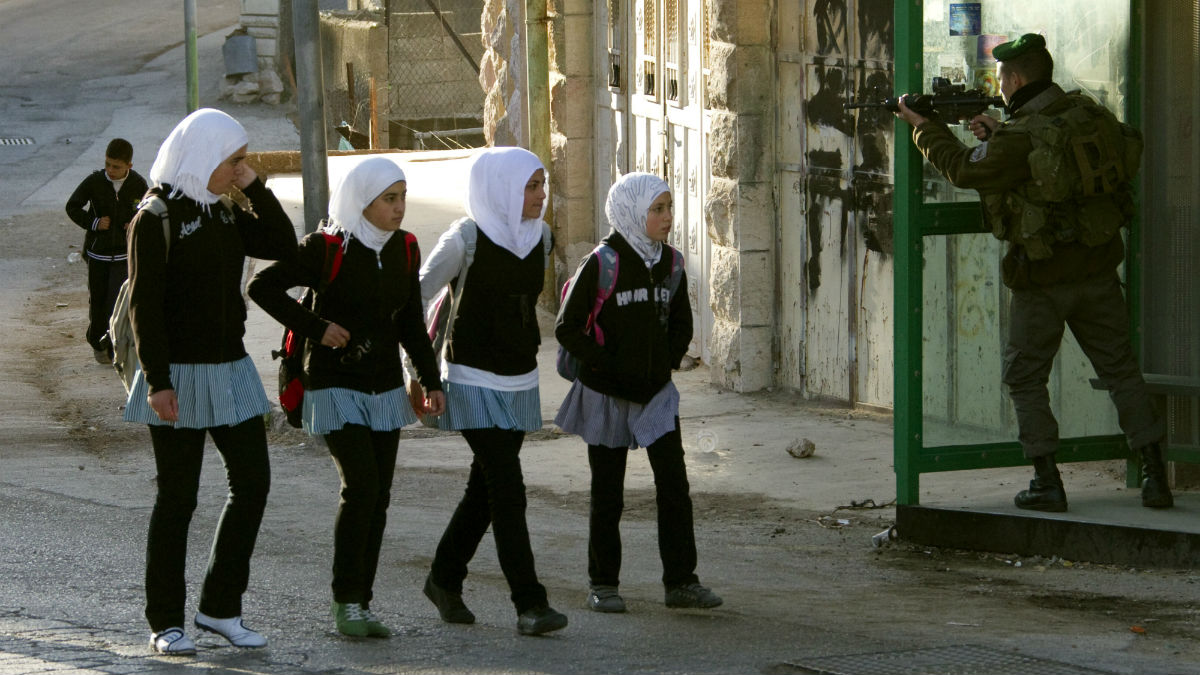Are Palestinians using settlement to fight back against Israeli settlements?
Palestinians accused of adopting 'Israeli tactics' by offering homes in Hebron rent-free

A free daily email with the biggest news stories of the day – and the best features from TheWeek.com
You are now subscribed
Your newsletter sign-up was successful
By Nigel Wilson
In the old city of Hebron, the Al Rajabi family is going about its daily routine.
Mahmoud, 16, hunched over a laptop in his bedroom, is watching music videos. Jena, 6, bounds between rooms, eager to talk about her school day, while Umm Fawzi, the matriarch, prepares a tray of black coffee and orange juice.
The Week
Escape your echo chamber. Get the facts behind the news, plus analysis from multiple perspectives.

Sign up for The Week's Free Newsletters
From our morning news briefing to a weekly Good News Newsletter, get the best of The Week delivered directly to your inbox.
From our morning news briefing to a weekly Good News Newsletter, get the best of The Week delivered directly to your inbox.
"Come, come! The drinks are ready," she calls to her children, setting the tray on a table in the courtyard.
It is a typical Palestinian, familial scene that remains a rarity in this part of Hebron's old city.
Abandoned over decades, often during periods of conflict with Israeli soldiers and settlers in Hebron, many of the houses here remain empty.
The home next door to the Al Rajabis' was vacated by its Palestinian owners during the second intifada, or uprising, that lasted from 2000-2005. That family now lives in the modern part of Hebron.
A free daily email with the biggest news stories of the day – and the best features from TheWeek.com
"The old city is great, living here is good," insists Fayez, 23, sipping his coffee. "But we need support from others. We need more Palestinians to come and live beside us in the old city.
"It's important that people come here, to take over the abandoned homes, especially to prevent the Israeli settlers taking over."
The Al Rajabi family moved to this house 12 years ago under a resettlement programme, administered by the Hebron Rehabilitation Committee (HRC).
A quasi-governmental body, funded by the Palestinian Authority and a number of international governments, the HRC aims to encourage the owners to return to their homes by restoring abandoned houses in the old city of Hebron.

If the owners do not wish to return to the old city, then the restored property is offered to another Palestinian family for five years, rent-free with free amenities.
"HRC was founded in order to counter Israeli settlements," said Nuha Dandis, a senior architect at HRC.
"The Israeli settlements were established here, in the centre of the old city. Day by day, we noticed that these settlements were being extended by adding buildings from the neighbours of these settlements."
The HRC's economic incentives mirror similar initiatives offered by the Israeli government to encourage Israeli settlers to move to other parts of the Occupied West Bank.
The Israeli state in the past offered direct economic incentives to settlers, although the controversial income tax break was withdrawn in 2003. Nowadays, the state offers discounts on land and mortgage grants in so-called "national priority areas", as well as government benefits for education, security and culture. Around ten per cent of these areas are settlements in the West Bank.
Dandis dismissed the idea that HRC was using similar incentive-based schemes to alter the demographics of the city, stating that the project was focused on preserving the social character of the city.
"The priority is always with the original owner," she said. "We are keen for the original families to come and live in their houses. They will feel very attached to the house, they will take care of it and also it would preserve the social fabric of Hebron."
Hebron is one of the oldest cities in the world and is home to key religious sites for Muslims and Jews. The Cave of the Patriarchs, located in the old city, is said to contain the tombs of key biblical and Quranic figures.
The Israeli military has been responsible for security in the old city since 1997, when Hebron was divided into two areas known as H1 and H2.
In the old city, around 600 Israeli settlers reside in four settlements amid a Palestinian population of 30,000. The soldiers, tasked with protecting the settlers, man a series of checkpoints that restrict access to parts of the old city.

Since 1997, the Israeli military has closed Shuhada Street, previously the commercial hub of the city, to Palestinians, while it has also barricaded or welded shut homes and businesses across the old city.
Curfews and other restrictions on freedom of movement peaked during the second intifada and prompted a fresh wave of Palestinian emigration from the old city.
Today, many Palestinians here complain of mistreatment at the hands of the soldiers, ranging from accusations of harassment and racism to the arbitrary use of violence.
On 22 September, a 19-year-old Palestinian woman was shot and killed by Israeli soldiers at a military checkpoint in the city. An Israeli military statement said the woman had attempted to stab a soldier. It later emerged the woman had been shot several times, including in the chest.
"My whole family has problems with the Israeli soldiers," said Umm Fawzi. "Sometimes when my children are sitting on the steps in front of the house, the soldiers come and arrest them, for no reason."
"But I love living here. For me, being here is a kind of resistance," she said. "It's a traditional Arabic home. We should keep it and we should also live in it. It represents our origins."
Since it was founded in 1996, the HRC has restored 1,000 housing units in Hebron, providing renovated homes to around 6,500 people, said Dandis. The project has helped the rhythms of domesticity return to what was becoming a ghost town.
For their part, the Israeli settlers in the old city are resentful that Palestinians are permitted to build and renovate whereas they have not been able to expand their settlements due to pressure from the Israeli government.
"They use words like rehabilitation, and other very nice words, to cover up their racist position," said Noam Arnon, a spokesperson for the settler community in Hebron. "The history of Hebron contains a very serious Jewish presence. The Jewish quarter was a unique phenomenon."
Israeli settlements in the West Bank are considered illegal by the United Nations and the international community as they have been built in Palestinian territory.
-
 What to know before filing your own taxes for the first time
What to know before filing your own taxes for the first timethe explainer Tackle this financial milestone with confidence
-
 The biggest box office flops of the 21st century
The biggest box office flops of the 21st centuryin depth Unnecessary remakes and turgid, expensive CGI-fests highlight this list of these most notorious box-office losers
-
 What are the best investments for beginners?
What are the best investments for beginners?The Explainer Stocks and ETFs and bonds, oh my
-
 Epstein files topple law CEO, roil UK government
Epstein files topple law CEO, roil UK governmentSpeed Read Peter Mandelson, Britain’s former ambassador to the US, is caught up in the scandal
-
 Iran and US prepare to meet after skirmishes
Iran and US prepare to meet after skirmishesSpeed Read The incident comes amid heightened tensions in the Middle East
-
 Israel retrieves final hostage’s body from Gaza
Israel retrieves final hostage’s body from GazaSpeed Read The 24-year-old police officer was killed during the initial Hamas attack
-
 China’s Xi targets top general in growing purge
China’s Xi targets top general in growing purgeSpeed Read Zhang Youxia is being investigated over ‘grave violations’ of the law
-
 Panama and Canada are negotiating over a crucial copper mine
Panama and Canada are negotiating over a crucial copper mineIn the Spotlight Panama is set to make a final decision on the mine this summer
-
 Why Greenland’s natural resources are nearly impossible to mine
Why Greenland’s natural resources are nearly impossible to mineThe Explainer The country’s natural landscape makes the task extremely difficult
-
 Iran cuts internet as protests escalate
Iran cuts internet as protests escalateSpeed Reada Government buildings across the country have been set on fire
-
 US nabs ‘shadow’ tanker claimed by Russia
US nabs ‘shadow’ tanker claimed by RussiaSpeed Read The ship was one of two vessels seized by the US military